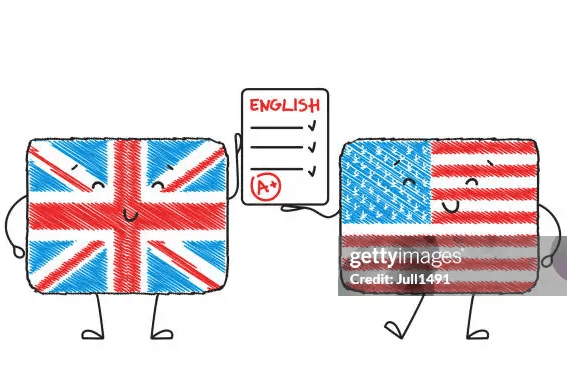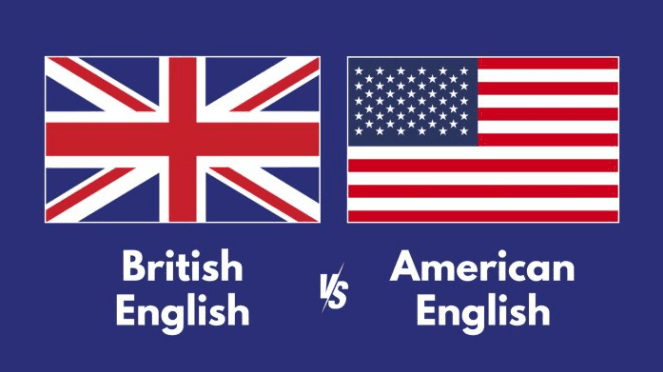Introduction
American and British English are two dominant varieties of the English language, serving as bridges between cultures, businesses, and academic disciplines. While they share a common foundation, their differences in spelling, vocabulary, pronunciation, and grammar can influence their suitability for various purposes.
Some may wonder whether American and British English are interchangeable or if one is superior to the other. The truth is, neither is universally better, but each has its strengths depending on the context. This article explores the advantages of American and British English, examining when and why one might be preferred over the other.

The Advantages of American English
1. Global Influence and Media Presence
One of the biggest advantages of American and British English is the global influence of American English in media and entertainment. Most popular films, television shows, music, and online content originate from the United States, leading to widespread familiarity with American English spelling, vocabulary, and pronunciation.
Platforms like Netflix, YouTube, and Hollywood movies ensure that non-native speakers are regularly exposed to American English. Even in countries where British English is the official standard, American English is often more easily understood due to media influence.
This dominance extends beyond entertainment into news media and global communication platforms. Major news networks such as CNN, The New York Times, and The Washington Post use American English, influencing how people worldwide consume information. Because of this, using American English can make content more accessible to a broader international audience.
2. Simpler Spelling System
American and British English differ significantly in spelling, with American English offering a more streamlined system. Spelling reforms led by Noah Webster in the 19th century aimed to make American English spelling more logical and phonetic. Some key differences include:
- “-or” vs. “-our” (e.g., color vs. colour, humor vs. humour)
- “-ize” vs. “-ise” (e.g., analyze vs. analyse, organize vs. organise)
- Dropping silent letters (e.g., program vs. programme, catalog vs. catalogue)
These changes make American English easier to learn for non-native speakers and provide a more intuitive approach to written communication.
3. Widespread Use in Business and Technology
American and British English have strong footholds in different areas, but American English dominates global business and technology. Many multinational corporations—especially those based in the U.S.—use American English in official communications. Companies like Google, Microsoft, and Apple follow American English conventions in their software and user interfaces, making it the standard for professionals in tech-related fields.
Additionally, international job markets often favour American English. Since many companies operate in global markets, using American English can make a candidate more competitive for jobs requiring international communication.
4. Scientific and Academic Publications
Academic writing in science, medicine, and technology often follows American English conventions. Many high-impact journals, including Nature, Science, and The New England Journal of Medicine, primarily publish in American English. This makes American English the preferred choice for researchers who want their work to reach the widest audience possible.
The Advantages of British English
1. Rich Historical and Cultural Prestige
British English is often associated with tradition, history, and literary excellence. As the birthplace of the English language, Britain has a rich literary heritage, with legendary writers like William Shakespeare, Charles Dickens, and Jane Austen. Many classic works of literature are written in British English, and this version of the language is often seen as more refined or sophisticated in certain circles.
For those who want to engage in literary or formal writing, British English provides a traditional and historically rooted structure that aligns with classical education systems in Europe and Commonwealth nations.
2. Official Language of Many International Institutions
British English is widely used in diplomacy, legal systems, and international organizations. Institutions such as the United Nations (UN), the European Union (EU), and the International Olympic Committee (IOC) follow British English conventions. Many Commonwealth countries, including India, Canada, Australia, and South Africa, also use British English as their standard.
British English may be the more appropriate choice for individuals working in international relations, law, or politics,
3. Distinct Vocabulary and Expressions
American and British English have distinct vocabularies, and can sometimes lead to misunderstandings for non-native speakers. Examples include:
- American: Apartment | British: Flat
- American: Truck | British: Lorry
- American: Elevator | British: Lift
- American: French fries | British: Chips
For writers and speakers who appreciate linguistic variety, British English offers a richer selection of expressions, idioms, and regional dialects.
4. Preferred in Academic and Formal Writing
Many European universities, including Oxford and Cambridge, use British English as their academic standard. British English tends to be more formal in tone, making it preferable for legal, governmental, and historical research.
In contrast to American English, which often simplifies grammatical rules and sentence structures, British English retains more traditional forms, such as:
- Use of “shall” instead of “will” in formal writing
- The retention of irregular past participles (“learnt” vs. “learned”)
- Collective nouns used as plural (“The team are ready” instead of “The team is ready”)
This level of formality can be advantageous in scholarly and diplomatic communication.
Which One Should You Use?
The choice between American and British English depends on the specific context and audience. Below are some general recommendations:
- For Business & Technology → American English is better due to its widespread corporate and tech industry usage.
- For Academic and Formal Writing → British English is often preferred in European and Commonwealth institutions.
- For International Travel → British English is more beneficial in Europe, Africa, and the Commonwealth, while American English is useful in North and South America.
- For Media and Online Content → American English is more recognizable due to Hollywood and digital platforms.
- For Creative Writing and Literature → British English provides richer historical and stylistic depth.
Conclusion
At its core, the distinction between American and British English is not about which is “better” but rather about which is more suitable for a particular purpose. American and British English both have their strengths. American English dominates in business, technology, and global media, making it a practical choice for modern communication. On the other hand, British English carries historical prestige, making it the preferred option for formal writing, diplomacy, and literary pursuits.
For learners and professionals, the key is to be adaptable. Understanding the nuances of American and British English allows for better communication and a more comprehensive grasp of English. Rather than seeing the two as competing, embracing their differences can enhance one’s ability to navigate international conversations and career opportunities.
Click on the link below and start improving your English writing skills.
https://fluent-eng.com/15-sentence-compression-examples-to-enhance-your-writing/

